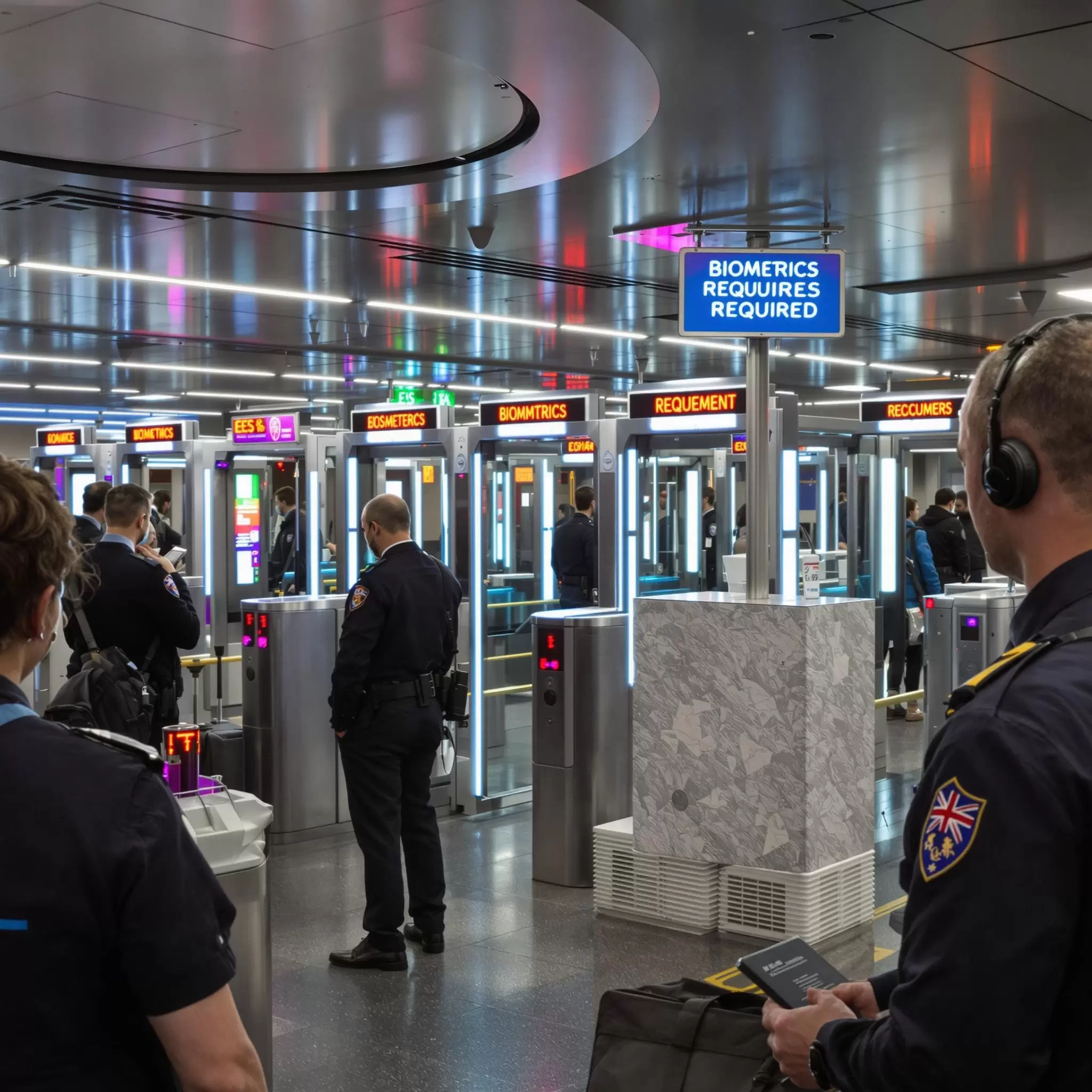
Remember when crossing the Channel from the United Kingdom to the European Union was as simple as showing your passport? Those days are gone. Since Brexit transformed UK citizens into “third country nationals,” the rules for visiting our beloved France have changed dramatically.
I’ve seen confusion, frustration, and even tears in my office as clients struggle to understand the new France visa requirements that govern their French holidays, second-home visits, and relocation dreams.
Want to hear what other clients
are saying about us?
1. Understanding the 90/180 Day Rule
The most significant change that catches many UK travellers off guard is the 90/180-day rule. As an immigration specialist handling dozens of cases monthly, I can confirm this is the number one issue that brings clients to my door.
You no longer need a visa to visit France for short stays, but you are strictly limited to 90 days within any 180-day period in the Schengen area. This applies whether you’re travelling for tourism, business meetings, or family visits. Many second-home owners are stunned when I explain that their property ownership doesn’t exempt them from this rule.
One client recently told me, “I’ve owned my cottage in Provence for 15 years, and now I’m treated like a tourist!” Unfortunately, that’s exactly how the French authorities now view British citizens who aren’t official residents when they enter the country.

2. Types of Visas for Longer Stays
If you want to stay in France beyond the 90-day limit, you’ll need to obtain a long stay visa france (visa de long séjour). These come in several categories depending on your purpose:
- Visitor visa (VLS-T visiteur) - For those not planning to work
- Work visa - For employment in France
- Student visa - For educational purposes
- Family reunification visa - For joining relatives
The visitor visa is the most common option for retirees and second-home owners. It allows stays of 4-12 months and requires proof of financial resources and health insurance. The standard fee is €99 (approximately £85), plus a service fee from the visa application centre. Make sure to have all required documents to ensure smooth processing and compliance with regulations.
If you're planning to pursue your studies in France, you'll need to apply for a study visa tailored for academic purposes. This process involves several steps, including obtaining an acceptance letter from a recognized French institution and completing the Campus France procedure. For a comprehensive guide on navigating the application process, required documentation, and tips for a successful application, refer to our detailed handbook on the study visa France.
If you're considering employment opportunities in France, our comprehensive guide on the French working visa process offers detailed information on eligibility criteria, application procedures, and essential documentation to help you navigate the complexities of working legally in France.
When you apply for a long-stay visa, it is essential to understand the specific requirements and procedures for your visa category. This includes gathering the necessary documentation and following the application guidelines closely.
3. How to apply for France visa from UK
The process of applying for a France visa from the UK has multiple steps that must be followed carefully:
- Create an account on the France visas website
- Complete the online application with all your personal details. Ensure that your application is fully completed before proceeding.
- Book an appointment at a visa application centre (London, Manchester, or Edinburgh). Appointments are crucial for submitting your application.
- Submit supporting documents and provide biometric data in person
- Pay the visa fee and service fee to the external service provider
- Track your application on the website after it has been submitted
- Collect your passport once the visa is approved
One of the most frustrating aspects I’ve witnessed is the difficulty in securing appointment slots. During peak travel seasons, visa appointment availability can be extremely limited, with wait times stretching to several weeks.
4. Common Pitfalls and How to Avoid Them

Appointment Bottlenecks
One client, a retired professor planning to spend six months renovating his French farmhouse, came to me in desperation after trying for weeks to secure an appointment. “There’s simply nothing available,” he said, showing me the constantly refreshing booking page on his phone.
The solution? Check all three UK visa centres (London, Manchester, and Edinburgh) and be ready to travel for your appointment. Set up alerts for early morning hours when the system often releases new slots, and be prepared to quickly select a convenient time and date.
Supporting Document Nightmares
The French consulate requires extensive supporting documents for visa applications. Applicants must hold specific documentation, such as a British Residence Permit or a visa, to travel to the Schengen area. Missing or incorrect paperwork can result in immediate rejection at the counter, with no refunds provided.
The most commonly overlooked requirements include:
- Proof of accommodation for your entire stay
- Comprehensive travel insurance with specific coverage amounts
- Evidence of sufficient financial resources (bank statements)
- Proof of intent to return to the UK (property ownership, employment, etc.)
Passport Validity Traps
I’ve seen too many cases where travellers are denied entry because their passport didn’t meet validity requirements or wasn’t properly stamped. French border officials may reject passports that are over ten years old or have fewer than three months’ validity remaining after your planned return date.
Always check your passport expiry date carefully, and if in doubt, renew before applying for your visa.
5. Processing Times and Planning
Official guidance suggests allowing at least 20 working days for visa processing, but real-life experiences vary widely. Most of my clients have their applications processed within 11-15 days, but I always advise planning for the full 20 days to avoid unnecessary stress.
You can track your application status through the France visas account you create when applying. The website will inform you when your passport is ready for collection, or you can pay for courier delivery.
6. Second-Home Owners: Special Considerations
If you own property in France but don’t qualify for residency, you’ll still need a visa for stays beyond 90 days unless you are exempted under specific conditions, such as being a family member of an EU citizen. This has been a bitter pill for many British property owners who previously enjoyed unlimited access to their French homes.
A retired couple who regularly consult with me have adapted by applying for sequential six-month visitor visas each year, alternating their time between France and the UK. While not ideal, this approach maximizes their time at their beloved Dordogne cottage while remaining compliant with French immigration law.
For many second-home owners, the dream gradually shifts from occasional visits to a permanent move, often evolving into a full retirement to France — a transition that carries important implications for visa status and residency planning.

7. Looking Forward: EES and ETIAS
Two important changes are on the horizon for UK travellers to France:
- The EU Entry/Exit System (EES) will launch soon, replacing manual passport stamps with biometric scanning. Note that this will affect all UK-France crossings and may result in longer queues initially.
- ETIAS (European Travel Information and Authorization System), a €7 travel authorization for visa-exempt travellers, has been delayed until the final quarter of 2026.
8. Final Thoughts
The new visa requirements represent a major shift in how UK citizens can travel to France. While the process can seem daunting and at times frustrating, proper preparation and understanding of the system will help ensure your French dreams aren't derailed by administrative hurdles.
Whether you're planning an extended holiday, managing a second home, or considering a permanent move to France, investing time in understanding the visa process will pay dividends in peace of mind and successful travel.
Remember that the process for making an application for a France visa continues to evolve, so always check the official France visas website for the most up-to-date information before submitting your application. With careful planning and the right supporting documents, you'll be saying "Bonjour, France!" before you know it.
Want to hear what other clients
are saying about us?
9. Frequently Asked Questions
How do I get a visa for France from UK?
To apply for a France visa from the UK, follow these steps:
- Check if you need a visa – UK citizens don’t need one for short stays; others may.
- Create an account on France-Visas – Fill out your application form online.
- Book an appointment via TLScontact – Attend in-person to submit biometrics and documents.
- Gather required documents – Passport, photos, proof of stay, insurance, etc.
- Submit your application – Attend your appointment.
- Track your visa status online – Wait for notification of decision.
Can I enter France with UK BRP?
No, a UK Biometric Residence Permit (BRP) does not grant visa-free entry to France. It confirms your legal residence in the UK but does not replace a visa for the Schengen Area. If you are a non-EU national residing in the UK with a BRP, you must apply for a French Schengen visa before travelling. The visa allows stays of up to 90 days within a 180-day period across France and other Schengen countries.
Do UK citizens need a visa for France in 2025?
No, UK citizens will not need a traditional visa for short stays in France in 2025. However, starting mid-2025, they must apply for ETIAS (European Travel Information and Authorisation System) before traveling. ETIAS is not a visa but a mandatory pre-travel authorisation for visa-exempt travellers. It allows UK citizens to visit France and other Schengen countries for up to 90 days within any 180-day period for tourism, business, or transit purposes.
How much is the France visa fee from the UK?
French visa prices from the UK depend on the type and duration of the visa:
- Short-stay Schengen visa (under 90 days): £81
- Airport transit visa: £81
- Long-stay visa (over 90 days): £162
- Children aged 12–18 (short-stay): £81
- Children aged 6–11: £40.50
- Children under 6: Free
Note: These fees exclude service charges by visa centres like TLScontact, which typically add around £30–£35.








